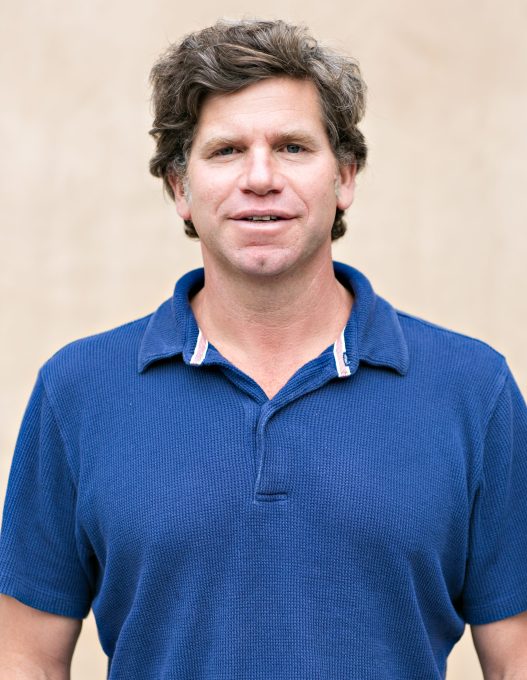Three years after stepping down as GoFundMe’s chairman and CEO, Rob Solomon is returning to the industry he calls his “first love,” digital commerce, as co-founder and CEO of Kite, a commerce company focused on investing in, acquiring and operating high-potential, digital-first consumer product brands.
In addition to GoFundMe, Solomon has a pretty extensive commerce background from roles at companies like Yahoo (running the commerce business unit) and Groupon (president and COO). He told TechCrunch he “knows Commerce 1.0 quite intimately,” and always wanted to get back to shopping.
“We’re entering a pretty interesting phase where e-commerce is for real,” Solomon said. “I say that flippantly. It’s big, but it’s still a small percentage of overall commerce. Physical commerce still dominates. The reality of commerce in the future is it’s not online. It’s not offline. It’s not Amazon. It’s not Shopify. It’s not direct-to-consumer. It’s just every channel.”

Rob Solomon, co-founder and CEO of Kite. Image Credits: Kite
Solomon started the company in 2022 with investment firms Juxtapose and Blackstone, which provided Kite with $200 million in equity funding to get started. The idea is to strategically acquire outfits with that money, then to help brand founders with capital and operations to accelerate their business from e-commerce to social, retail and beyond. Part of that vision includes building a tech stack that leans on artificial intelligence and API to provide better manufacturing, supply chain, design and customer acquisition capabilities.
That description sounds an awful lot like an e-commerce aggregator, a company that buys consumer product companies and uses tech infrastructure to scale them. Further, one of Kite’s board members is Delta Dental president and CEO Mark Mitchke, who was previously general manager of Fulfillment by Amazon. Still, Solomon insists Kite is something else, something newer.
“The best way to think about it is it’s a commerce platform company,” Solomon said. “We want to own and operate a finite number of brands, which will train the system. We want to invest in commerce, businesses and software companies to help build the ecosystem. We want to ultimately provide a platform to tens of thousands, if not hundreds of thousands, if not millions, of direct sellers over the next decade.”
There are a lot of inefficiencies, friction and high costs for most small and medium direct sellers, so Kite is building the software and providing the services for how products are made, moved, marketed, shipped, stored and sold at scale, Solomon explained.
Jed Cairo, co-founder and partner at Juxtapose, echoed Solomon in a written statement, writing that his firm believes “consumer-facing commerce is in the early innings of a revolution. More and more categories are moving away from brands advantaged by hyper-scale, TV advertising and big box retail relationships to specialized, smaller, high-passion brands that are nimble and powered by world-class technology.”
As for how Kite gets there, Solomon has already surrounded himself with a group of people, including a GoFundMe colleague, Ujjwal Singh, who is chief product and technology officer; Nastasha Tan, chief design officer, who was previously with Ideo and Uber; and supply chain and operations expert John Kufner as chief operations officer.
Joining Mark Mitchke on the company’s board is James Chen, CTO of Built Technologies and former CTO of Flexport.
Meanwhile, Kite has acquired a couple of undisclosed businesses, including one in the fitness category and in the broader self-improvement category. Solomon said it is a good time to start Kite because out of economic corrections often come “some of the best companies in the world,” because they’re disciplined about spending money and focused on building durable businesses.
Comparatively, notes Solomon, for years leading up to the market’s abrupt shift last year, brands were told to grow at all costs and “don’t worry about creating an efficient, effective cash flow generating business model.” When the market corrected and capital was tough to obtain, growth among small e-commerce brands flattened, and many acquirers, including e-commerce aggregators, had to stop activity.
In fact, even a year later some acquirers are still on “pause mode” with regard to acquisitions, said Taliesen Hollywood, director of specialist M&A at London-based Hahnbeck, in an email interview with TechCrunch.
Hollywood, who brokers deals between buyers and sellers of e-commerce companies, said that aggregators today are being “far more selective” than in 2020 and 2021, and that “brand equity, defensibility against competition and scale are more important, among other things,” which means that “far fewer acquisition targets meet their criteria.”
Indeed, when asked about the kinds of brands Kite is interested in acquiring, Solomon said that durability and relevance were important, but quality “is very important.”
“If you can take what great brand companies have done and apply technology to them, you have a really interesting opportunity to create the brands of the future that will become the consumables and the durables that have defined the last 100 years,” Solomon said. “In the way great consumer goods companies have defined everything in product for the last century, there’s going to be new companies that get created that come and take some of the share away. That’s part of what we’re hoping we can do with our owned-and-operated brands: help them gain market share advantages over time.”
